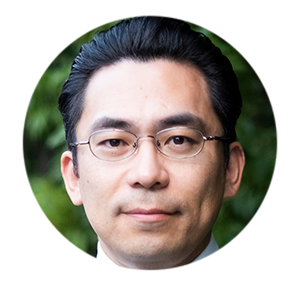The seminar will be in-person followed by a social networking session
with light refreshments & drinks.
Day: 18 Sep 2023
Time: 16:00 - 17:30
Venue: L2M theatrette 'Aspiration', Matrix Building, Level 2 M, Biopolis
30 Biopolis Street, Singapore 138671
Time: 16:00 - 17:30
Venue: L2M theatrette 'Aspiration', Matrix Building, Level 2 M, Biopolis
30 Biopolis Street, Singapore 138671
Abstract
The development of high-throughput single-cell RNA-seq has provided unprecedented opportunities for a better understanding of cell differentiation. Although many practical software packages have been developed to infer cell differentiation trajectories, there are still many mathematical, statistical and computational challenges to overcome to gain meaningful insights from such data. For example, methods for inferring cell differentiation trees need to be further explored. It is also important to establish quantitative methods for assessing the reliability of inferred trees. In this talk, we will explain several mathematical approaches, including our software Treefit, that may be useful for stem cell biologists. We will present some results of analyses using these approaches. The development of Treefit is a joint work with Ryohei Suzuki, Hiromi Ishii and Kohei Sutou. https://hayamizu-lab.github.io/treefit/
The development of high-throughput single-cell RNA-seq has provided unprecedented opportunities for a better understanding of cell differentiation. Although many practical software packages have been developed to infer cell differentiation trajectories, there are still many mathematical, statistical and computational challenges to overcome to gain meaningful insights from such data. For example, methods for inferring cell differentiation trees need to be further explored. It is also important to establish quantitative methods for assessing the reliability of inferred trees. In this talk, we will explain several mathematical approaches, including our software Treefit, that may be useful for stem cell biologists. We will present some results of analyses using these approaches. The development of Treefit is a joint work with Ryohei Suzuki, Hiromi Ishii and Kohei Sutou. https://hayamizu-lab.github.io/treefit/
Bio
Momoko Hayamizu received her MD degree from The University of Tokyo in 2010. She completed her residency and fellowship as a radiologist. She received her PhD degree in statistical science from the Graduate University for Advanced Studies in 2017 for research on discrete mathematical problems in biology and life sciences. She is currently an Associate Professor at the Department of Applied Mathematics, Faculty of Science and Engineering, Waseda University (早稲田大学). Her research interests include mathematical and computational problems related to cell differentiation and the evolution of organisms. She is a recipient of the Young Scientist's Prize of the Commendation for Science and Technology by the Minister of Education, Culture, Sports, Science and Technology for 2022. She offers many lecture videos in English and Japanese (some videos are subtitled in Chinese) on her YouTube channel, which has over 34,000 subscribers. https://www.youtube.com/c/hayamizu-lab
Momoko Hayamizu received her MD degree from The University of Tokyo in 2010. She completed her residency and fellowship as a radiologist. She received her PhD degree in statistical science from the Graduate University for Advanced Studies in 2017 for research on discrete mathematical problems in biology and life sciences. She is currently an Associate Professor at the Department of Applied Mathematics, Faculty of Science and Engineering, Waseda University (早稲田大学). Her research interests include mathematical and computational problems related to cell differentiation and the evolution of organisms. She is a recipient of the Young Scientist's Prize of the Commendation for Science and Technology by the Minister of Education, Culture, Sports, Science and Technology for 2022. She offers many lecture videos in English and Japanese (some videos are subtitled in Chinese) on her YouTube channel, which has over 34,000 subscribers. https://www.youtube.com/c/hayamizu-lab
Abstract
Adult autologous human epidermal stem cells can be extensively expanded ex vivo for cell and gene therapy. Identifying the mechanisms involved in stem cell maintenance and defining culture conditions to maintain stemness is critical because an inadequate environment can result in the rapid conversion of stem cells into progenitors/transient amplifying cells (clonal conversion) with deleterious consequences on the quality of the transplants and their ability to engraft. Here we demonstrate that cultured human epidermal stem cells respond to a small drop in temperature through thermoTRP channels connected to mTOR signaling. Exposure of cells to rapamycin or a small drop in temperature also induces the nuclear translocation of mTOR with an impact on gene expression. We also demonstrate by single-cell analysis that long-term inhibition of mTORC1 reduces clonal conversion and favors the maintenance of stemness. Taken together our results demonstrate that human keratinocyte stem cells can adapt to environmental changes (e.g, small variations in temperature) through mTOR signaling, and constant inhibition of mTORC1 favors stem cell maintenance, a finding of paramount importance for regenerative medicine applications.
Adult autologous human epidermal stem cells can be extensively expanded ex vivo for cell and gene therapy. Identifying the mechanisms involved in stem cell maintenance and defining culture conditions to maintain stemness is critical because an inadequate environment can result in the rapid conversion of stem cells into progenitors/transient amplifying cells (clonal conversion) with deleterious consequences on the quality of the transplants and their ability to engraft. Here we demonstrate that cultured human epidermal stem cells respond to a small drop in temperature through thermoTRP channels connected to mTOR signaling. Exposure of cells to rapamycin or a small drop in temperature also induces the nuclear translocation of mTOR with an impact on gene expression. We also demonstrate by single-cell analysis that long-term inhibition of mTORC1 reduces clonal conversion and favors the maintenance of stemness. Taken together our results demonstrate that human keratinocyte stem cells can adapt to environmental changes (e.g, small variations in temperature) through mTOR signaling, and constant inhibition of mTORC1 favors stem cell maintenance, a finding of paramount importance for regenerative medicine applications.
Bio
Daisuke Nanba received Ph.D. in Biology from Osaka University, where he studied cell adhesion systems during hair follicle and mammary gland development. He then worked on ectodomain shedding of EGFR-ligands at Ehime University and ex vivo maintenance and expansion of human keratinocyte stem cells at École Polytechnique Fédérale de Lausanne (EPFL) as a Postdoctoral Fellow in Prof. Yann Barrandon lab. He moved back to Ehime University as a Senior Research Fellow and started to analyze human keratinocyte stem cell behavior. He moved to Tokyo as an Associate Professor at Medical Research Institute, Tokyo Medical and Dental University, and is currently working as an Associate Professor at The Institute of Medical Science, The University of Tokyo.
Daisuke Nanba received Ph.D. in Biology from Osaka University, where he studied cell adhesion systems during hair follicle and mammary gland development. He then worked on ectodomain shedding of EGFR-ligands at Ehime University and ex vivo maintenance and expansion of human keratinocyte stem cells at École Polytechnique Fédérale de Lausanne (EPFL) as a Postdoctoral Fellow in Prof. Yann Barrandon lab. He moved back to Ehime University as a Senior Research Fellow and started to analyze human keratinocyte stem cell behavior. He moved to Tokyo as an Associate Professor at Medical Research Institute, Tokyo Medical and Dental University, and is currently working as an Associate Professor at The Institute of Medical Science, The University of Tokyo.
Chairs
Oliver DREESEN, ASRL, Singapore
Oliver DREESEN, ASRL, Singapore


